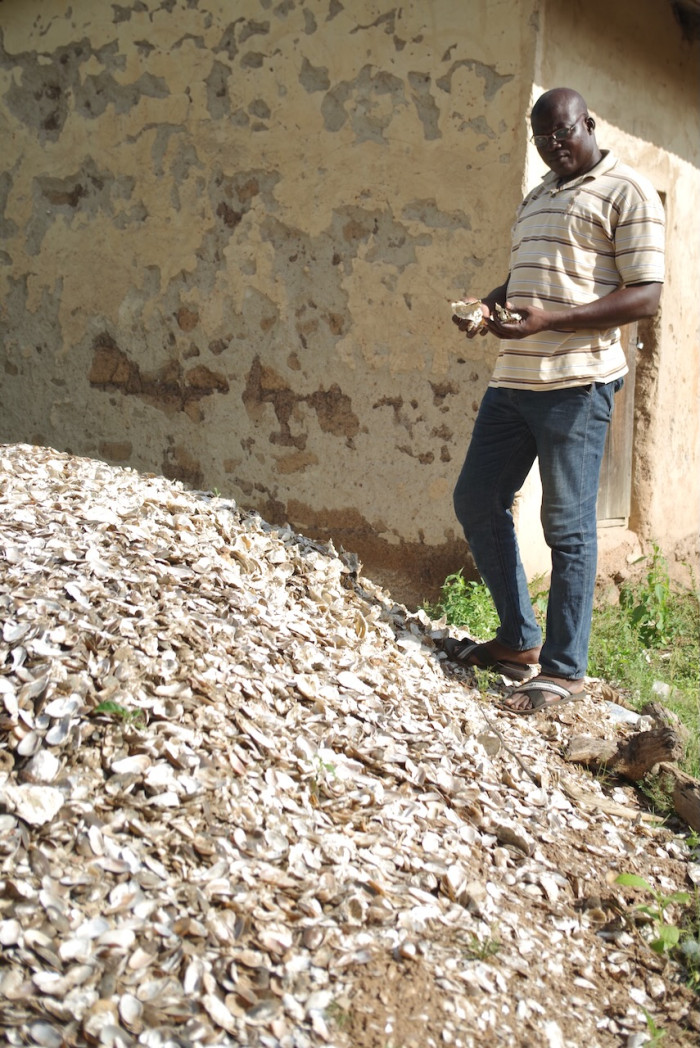
The Market Oriented Agricultural Program in North-West Ghana, a component of the GIZ implemented Sustainable Employment through AgriBusiness project, which is co-financed by the EU, supports the development of the rice, sorghum, groundnut, soya, vegetables, mango and cashew value chains in North-West Ghana.
In this context, AFC is piloting the first youth targeted intervention, known as “The Youth in Agribusiness (YiAB)” program, which supports eleven youth-led agribusiness SMEs in their ability to create job opportunities. YiAB is providing practically oriented training, coaching and mentoring during a 4-month support cycle in the following areas:
Dry season farming
Crop production
Agri-food processing
Agricultural inputs supply
Extension dissemination
Entrepreneurship training, focusing on business planning, enterprise development, marketing and advertising skills.
This support is expected to enable the youth to promote their own innovations for increased production, processing and marketing. They would not only be expected to apply the acquired skills and to share and disseminate agribusiness information and knowledge, but also to have the opportunity of being recognized as youth mentors in their respective districts.
Tagtado Farms, a beneficiary of the program, has set out to integrate oyster shells into poultry feed and to market oyster shell powder as an alternative calcium input for soil conditioning.
Registered in 2015 and owned by the couple Ms Carolina Gobr and Mr James Soyelleh, Tagtado Farms is engaged in poultry production and poultry feed marketing. In February of 2022, the effect of the Covid-19 pandemic and the Russian war against Ukraine affected its production with massive increases in production costs. An almost 500% increase in the cost of some poultry feed components (wheat bran, concentrates and pre-mixes), as well as substantial increases in the price of soya cake was observed, which is the most important protein source used in feeding farm poultry.
This crisis in input prices has provided an opportunity to source relevant inputs closer to home, utilizing locally available renewable natural resources such as locally produced and processed soybean and oyster shell – the latter, an environmentally friendly, non-utilized, waste product, heaped along the banks of the Black Volta river of Ghana, where oyster fishing is a common practice. While the Market Oriented Agricultural Program (MOAP-NW) has been pioneering the use of grinded oyster shells as a locally produced, alternative calcium input product for the liming of soils. It can also be used as a supplement to soy cake and rice bran in the poultry industry. Tagtado Farms has set out to explore both of these business opportunities.
The enterprise requires a weekly minimum of 100 kg of finely ground oyster shell to feed its 5,000 birds and an additional 500 kg of oyster shell, to formulate feed for six other poultry farmers in the adjoining districts, with around 30,000 birds. The demand for oyster shell in the poultry industry feeds into the MOAP-NW strategy to process and create jobs for non or under-utilized renewable natural resources.
Tagtado Farms has already procured a hammer mill, in order to grind oyster shells in larger volumes and a small screw press and then process oil and oil seed (local sesame and soya) cake for their poultry feed. The goal of the company is to meet the poultry feed needs for itself and other poultry farmers, while the rest of the oyster shell powder will be marketed for calcium nutrition and soil conditioning. This effort is complemented by MOAP-NW, supporting the organizational development of local women groups, which would supply Tagtado Farms with collected, sorted and dried oysters for subsequent milling, packaging and marketing.
For more information about this project, please contact our Project Manager Matthias Webendörfer (matthias.webendoerfer [at] afci.de).
